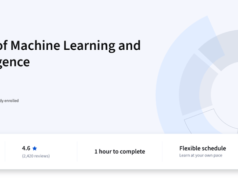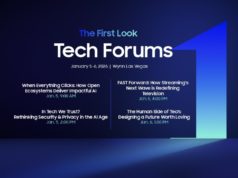Over past 12 months there have been plenty of major developments in the tech world, ranging from the launch of the Apple Watch to the emergence of Crypto Wars 2.0. Among the year’s top stories:
FCC Vote on Net Neutrality
After years of legal uncertainty about the status of Net neutrality in the U.S., the Federal Communications Commission (FCC) on February 26 voted 3-2 in favor of its Open Internet Order, establishing “clear, bright-line rules” against blocking, throttling and paid “fast-lane” prioritization of content delivery by Internet service providers. Hailed by open Internet advocates, the FCC’s order nevertheless remains in limbo as it faces continued challenges in court and Congress.
Windows 10
Microsoft made headlines for many reasons throughout 2015, but one of its biggest splashes came with the late July release of Windows 10, which the company described as its “last” version of Windows. To be updated on an ongoing basis rather than in new, discrete versions, Windows 10 was designed as a universal operating system using the same code across all devices. That means the user experience on, say, a Windows Phone would be virtually the same as on a Windows laptop or PC.
Windows 10, which had been downloaded onto more than 110 million devices by early October, also featured a more advanced and “smarter” Cortana digital assistant. Ahead of the release of the operating system, Microsoft executive Terry Myerson said the company aimed to see Windows 10 on 1 billion devices within two to three years.
Crypto Wars 2
In the wake of former National Security Agency (NSA) contractor and whistleblower Edward Snowden’s 2013 revelations about widespread government surveillance of people’s electronic communications, a growing number of tech companies — Apple, in particular — began providing encryption by default on their devices to assure customers their data would remain private and secure.
Pushing back against that trend were law enforcement and other government officials such as FBI Director James Comey and former CIA Director James Woolsey, who have been lobbying for backdoor access to encrypted data. Their efforts took on new urgency after terrorist attacks such as the November 13 assaults in Paris that killed 130 people, although critics pointed out that the attackers’ communications were mostly unencrypted.
“The FBI hasn’t given up on an encryption backdoor (or other backdoor access to plaintext) since the early 1990s, and it’s not going to give up now,” cybersecurity expert Bruce Schneier said in October. “I expect there will be more pressure on companies, both overt and covert, more insinuations that strong security is somehow responsible for crime and terrorism, and more behind-closed-doors negotiations.”
The Rise of the Machines’ (Learning)
In 2015, machines ranging from Google’s search algorithms to Tesla’s automated cars became ever smarter. Microsoft brought machine learning to its cloud-based Azure platform and its digital assistant Cortana to Windows, iOS and Android devices.
Google brought Gmail spam levels down to a trickle with the help of artificial intelligence. Amazon improved its automated ranking algorithms to discourage fake and paid-for reviews. And Tesla began making over-the-air software updates to its Model S vehicles to enable new self-driving capabilities along with existing self-parking and collision prevention abilities.
Facebook’s Next Billion
In August, Facebook hit a new milestone: 1 billion users in a single day. That meant that in a 24-hour period one out of every seven people on Earth was using the social network to share likes, news stories, cat videos and other information with friends and family. Facebook founder and CEO Mark Zuckerberg said during the company’s F8 developers’ conference in March that his goal is to eventually enable “everybody” to connect via Facebook tools, apps and services.
Safe Harbor No More
Both Facebook and Google found themselves challenged by European authorities during 2015 over concerns about privacy, but the greatest blow to U.S. tech companies arrived in October, when the Court of Justice of the European Union declared invalid the long-standing E.U.-U.S. “Safe Harbor” agreement. Used since 2000, the pact allowed U.S. companies to self-certify they would comply with European privacy standards. The court’s ruling stated that the Safe Harbor agreement “enables interference, by United States public authorities, with the fundamental rights of persons.”
Apple’s Banner Year
Notwithstanding its critics in the NSA and other surveillance bodies, Apple had a very good year in 2015. In April, the company introduced its new Apple Watch, which CEO Tim Cook said “begins a new chapter in the way we relate to technology.” In addition to functioning as a timepiece, the Apple Watch also supports fitness tracking, messaging, e-mailing and calling with integrated iPhones.
Five months later, the company launched its new iPhone 6s and 6s Plus models, breaking all of its previous sales records within the first weekend of availability. Even before the Apple Watch and iPhone 6s, Apple was dominating the mobile market. In February, the research firm Canaccord Genuity reported that the company had raked in 93 percent of the mobile phone market’s revenues in the final quarter of 2014.







